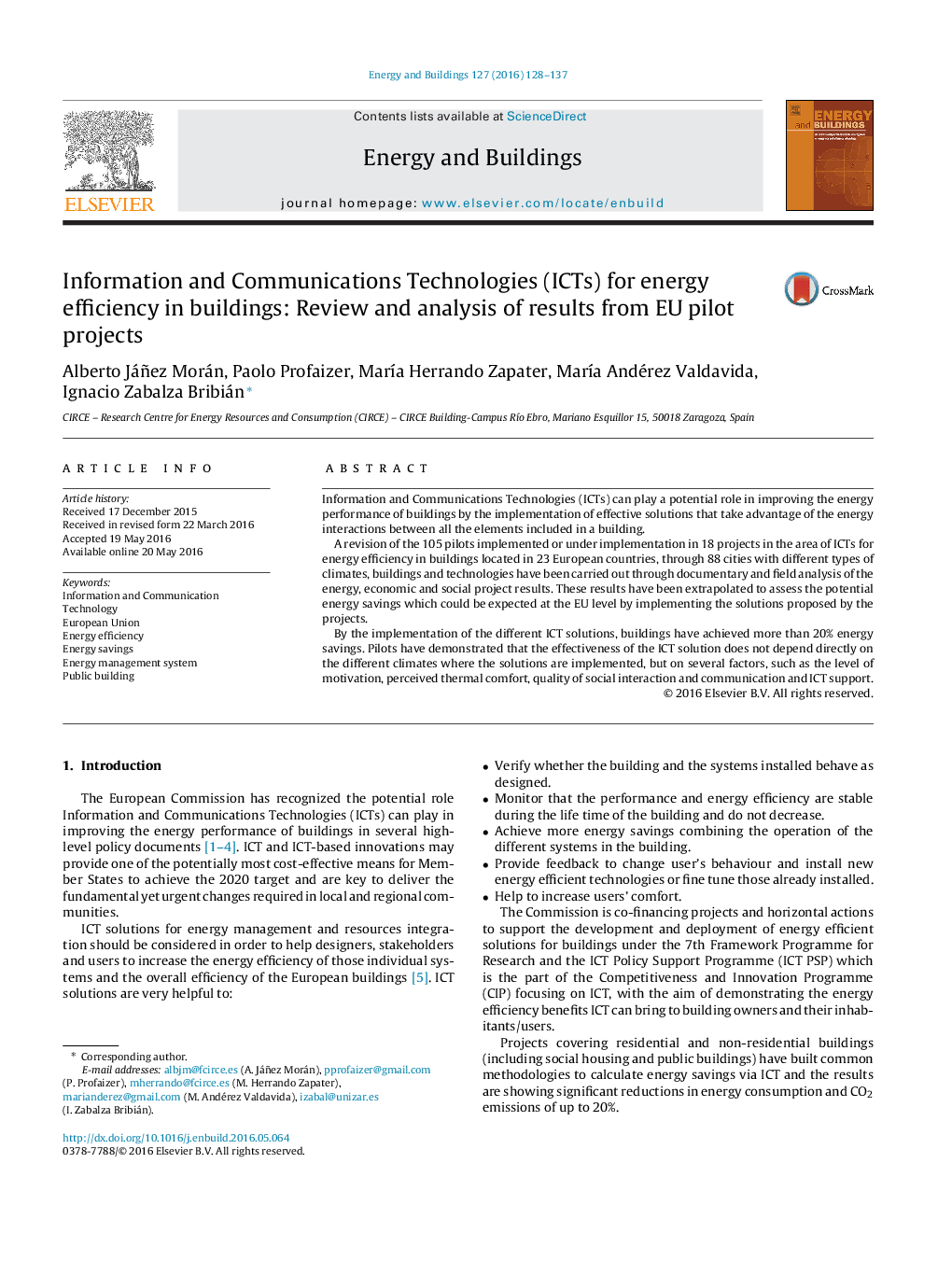| Article ID | Journal | Published Year | Pages | File Type |
|---|---|---|---|---|
| 261969 | Energy and Buildings | 2016 | 10 Pages |
•Data using two ICT systems over one year were collected for 18 EU pilot projects.•Public buildings have achieved more than 20% energy savings due to ICT systems.•Effectiveness of the ICT solution does not depend only on the different climates.•In social housing energy savings are moderate due to the already low consumption.•Users involvement and behavioural change are crucial points for the project success.
Information and Communications Technologies (ICTs) can play a potential role in improving the energy performance of buildings by the implementation of effective solutions that take advantage of the energy interactions between all the elements included in a building.A revision of the 105 pilots implemented or under implementation in 18 projects in the area of ICTs for energy efficiency in buildings located in 23 European countries, through 88 cities with different types of climates, buildings and technologies have been carried out through documentary and field analysis of the energy, economic and social project results. These results have been extrapolated to assess the potential energy savings which could be expected at the EU level by implementing the solutions proposed by the projects.By the implementation of the different ICT solutions, buildings have achieved more than 20% energy savings. Pilots have demonstrated that the effectiveness of the ICT solution does not depend directly on the different climates where the solutions are implemented, but on several factors, such as the level of motivation, perceived thermal comfort, quality of social interaction and communication and ICT support.
